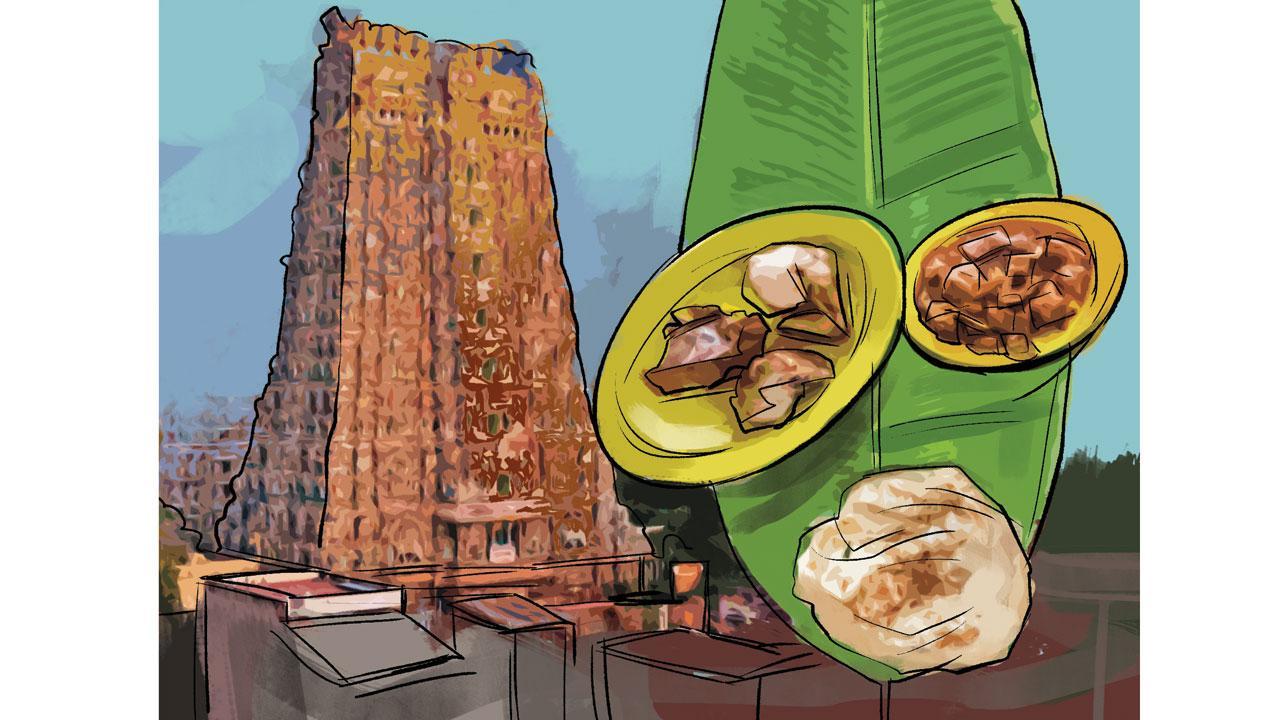In Madurai, temples are everywhere, their varied surfaces teeming with mythical creatures and uncompromising gods

Illustration/Uday Mohite
![]() What does it mean to do work you love? Like all love, it is equal parts difficulty, exhilaration and self-discovery.
What does it mean to do work you love? Like all love, it is equal parts difficulty, exhilaration and self-discovery.
ADVERTISEMENT
I spent all of last week in Madurai, shooting for a documentary film. It has been 13 years since I last made one, having spent this time on other things—a digital platform, writing, television, though in my head all of those were just some version or other of the documentary arts. It’s a strange profession. It defies categorisation—being at once art, politics, pamphlet, meditation, poetic, prosaic, challenging, open-ended in possible forms it can assume, as many forms as there are people and realities really.
In Madurai, temples are everywhere, their varied surfaces teeming with mythical creatures and uncompromising gods. It is only by looking at each for a while that the carnival of forms reveals the underlying dynamic, the thematic relationships that binds the profusion. As plentiful are the kinds of parottas and mutton curries you encounter in countless messes. The parottas are pliable puff pastries, their many layers overlapping. So are the spices in the curries, their individual natures discernible but their heat compacted and muscular, like a mythical being gradually manifesting from a fire. For North Indians, used to “pure veg” temple towns, this bubbling world of the devi is a revelation.
I am not sure why I asked one lawyer I interviewed for the film, why he became a lawyer. Perhaps it was just to set him at ease, perhaps I wondered about something in the air around him, perhaps those layers overlapped. For a split second, he was perplexed. I guess no one asks lawyers, or doctors, or engineers, this question—the way they do with documentary filmmakers. Those things seem self-evidently useful and practical. He replied “actually I was forced to become one. But now, after doing it for so many years, it has become a passion.” Later, he mentioned he had actually wanted to be an English professor, but because his family was embroiled in a dispute, his father felt there should be a lawyer in the family. Love is just a poetic relationship with reality, however prosaic it seems to others.
Going back to documentary work, with a team of colleagues, each one’s perspective overlapping, is a chance to be present in the world with a deep physicality. This physicality reveals its spiritual significance in our very digital times. One must be constantly attentive and engaged with the reality you step into, without assuming you can “capture” it.
You must abandon your preconceptions, both about yourself and others, and allow meaning and understanding to unfold like spices in curries. It is indeed a chance to love the world, to agree and disagree with it, to struggle physically, intellectually, and emotionally with it all, yet remain curious and accept some not-knowing. It is a chance to love yourself too, to be curious about who you have become in the 13 years you were doing something else. What a relief it is to be in this unfolding engagement with the world, which our digital existence, constantly broken into bits--constantly in a rush to decide, know, opine, define, to control--tightly disallows.
What does it mean to do work you love? I guess it’s always surprising, like eating a parotta soaked in curry and letting it bite your tongue.
Paromita Vohra is an award-winning Mumbai-based filmmaker, writer and curator working with fiction and non-fiction. Reach her at [email protected]
 Subscribe today by clicking the link and stay updated with the latest news!" Click here!
Subscribe today by clicking the link and stay updated with the latest news!" Click here!







